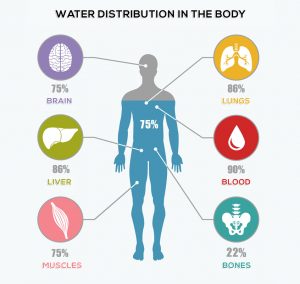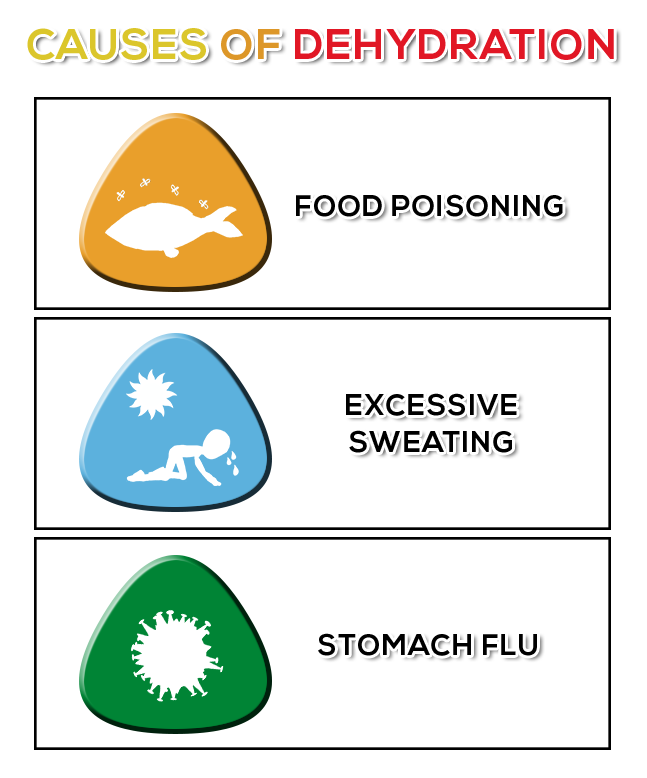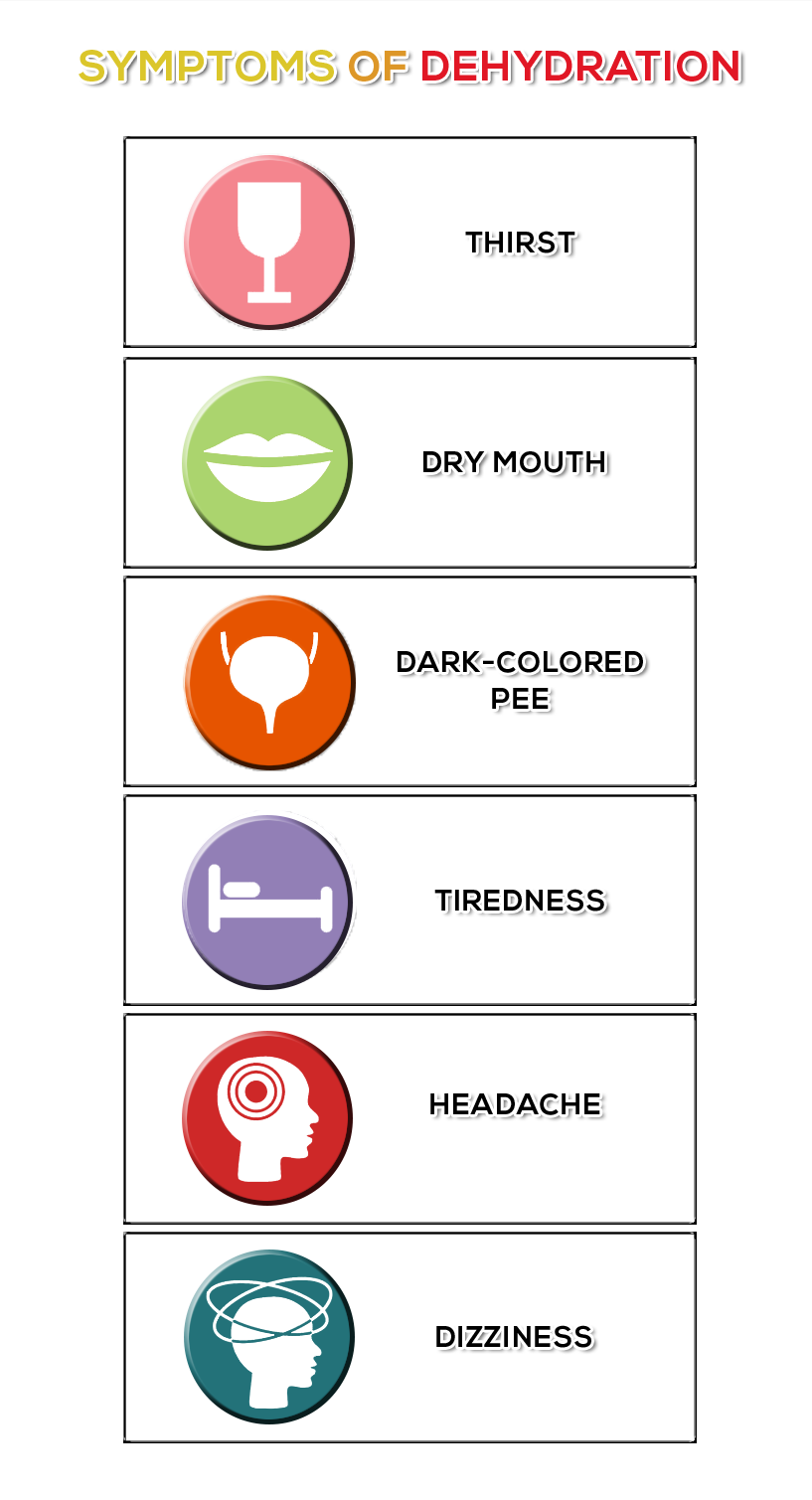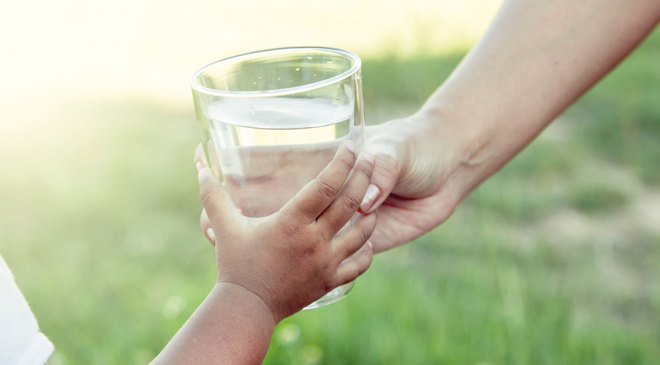WATER IN ORGANISM
Water is the most important element for living beings and there are organisms that can have almost 90% of their weight in water. Our body is composed of approximately 70% of water and this high value indicates the importance of this element for our organism. The water from our body can be divided into two compartments: The intracellular fluid which is the major component representing about two-thirds of body water and the extracellular fluid which can be divided into interstitial fluid (between cells) and plasma. Plasma volume represents approximately one quarter of the extracellular volume. Water is involved in several physiological mechanisms and their balance, as well as the balance of electrolytes, has major influence on its absorption and / or excretion, being regulated by precise molecular mechanisms in constant balance. If a person loses 10% of the water in his body his life can be at risk. If the lost is from 20% the health condition is so severe that can lead to death. The amount of water to be taken daily should represent at least 3% of body weight, which means the average requirement of water per person is about 2 liters per day

 Dehydration is a condition in which a person losses more fluids than the necessary to maintain correct functioning of the organism. Being a physiologically regulated balance, dehydration occurs when there is an alteration in the balance, due to a decrease in fluid intake or an increase in fluid losses by the body. Dehydration can be qualified as mild, moderate, or severe, depending on the amount of fluid lost and not being replenished, the condition being severe and life-threatening. Effectively a person can suffer from dehydration being the latter caused by two different processes but in the end provoking a similar condition: hydroelectrolytic imbalance. Sometimes the lack of fluids may be due to a reduced intake of water due, for example, to nausea, loss of thirst and appetite related with an illness etc. However, these causes usually represent a small percentage of dehydration cases and usually don’t lead to a moderate or severe case. Finally, the other process responsible for the lack of fluids in the body is the excessive loss of water caused by: excessive sweating, fever, polyuria, vomiting and / or diarrhea.
Dehydration is a condition in which a person losses more fluids than the necessary to maintain correct functioning of the organism. Being a physiologically regulated balance, dehydration occurs when there is an alteration in the balance, due to a decrease in fluid intake or an increase in fluid losses by the body. Dehydration can be qualified as mild, moderate, or severe, depending on the amount of fluid lost and not being replenished, the condition being severe and life-threatening. Effectively a person can suffer from dehydration being the latter caused by two different processes but in the end provoking a similar condition: hydroelectrolytic imbalance. Sometimes the lack of fluids may be due to a reduced intake of water due, for example, to nausea, loss of thirst and appetite related with an illness etc. However, these causes usually represent a small percentage of dehydration cases and usually don’t lead to a moderate or severe case. Finally, the other process responsible for the lack of fluids in the body is the excessive loss of water caused by: excessive sweating, fever, polyuria, vomiting and / or diarrhea.


